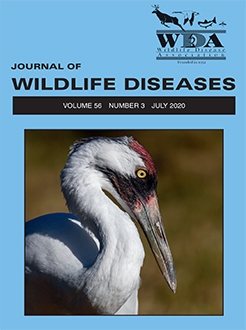Tick-borne protozoans of the genus Hepatozoon are obligate hemoparasites that can infect domestic and wild terrestrial vertebrates. Main hepatozoonosis affects canids and involves mainly Hepatozoon canis and Hepatozoon americanum. However, molecular studies revealed the capacity of H. canis to infect a wide range of wild mammals. In July 2018, we conducted an epidemiological survey for tick-borne pathogens in wild hosts, assaying Hepatozoon sp. occurrence in 34 bats captured in different habitats within a conservation unit in the state of Espírito Santo, southeastern Brazil. Blood and spleen tissue DNA samples were submitted to PCR amplifications of Babesia/Theileria and Hepatozoon 18S rRNA gene and 21% (7/34) were positive for Hepatozoon sp. Phylogenetic inferences grouped the obtained sequences from Seba's short-tailed bat (Carollia perspicillata) with the H. canis cluster, and from the great fruit-eating bat (Artibeus lituratus) with rodent-associated Hepatozoon cluster. Further studies are needed to characterize the epidemiological role of Seba's short-tailed bat and the great fruit-eating bat in the wild transmission cycle of these hemoparasites in Brazil.
How to translate text using browser tools
2 July 2020
Hepatozoon Infecting Bats in the Southeastern Brazilian Rainforest
Elizabeth C. F. Santos,
Nicole O. Moura–Martiniano,
Roberto V. Vilela,
Camila S. Lucio,
Ademar F. Silva,
Stefan V. Oliveira,
Gilberto S. Gazeta
ACCESS THE FULL ARTICLE

Journal of Wildlife Diseases
Vol. 56 • No. 3
July 2020
Vol. 56 • No. 3
July 2020
Bat
hemoparasite
protozoa
southeast Brazil
tick-borne pathogen




